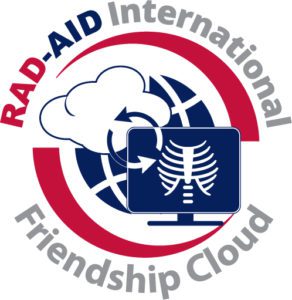Volunteer with RAD-AID Informatics

Radiology health care in low and middle income countries is scarce — digital imaging and health information technologies are even scarcer! Even those health facilities in resource-limited and poor regions that have radiology services, usually do not have the vital software, broadband, and network infrastructure for digital radiology and electronic health care. We can change that. Read our recently 2020 paper on RAD-AID’s AI and IT strategies, published in Radiology.

RAD-AID offers numerous opportunities for health IT professionals to volunteer and serve in low-resource regions, such as for the building of new IT architectures, installing PACS/RIS, implementing IT networks and teaching radiology IT software tools to health workers. RAD-AID integrates its informatics teaching programs with our clinical operations in our multidisciplinary teams so that radiology software can have the very best impact on patient-care.
For example, RAD-AID runs bootcamp training sessions for local health IT professionals to learn radiology IT (photo below from Ghana, 2018). RAD-AID has donated and installed over 15 PACS platforms in 10 countries since 2015. In 2018-19, RAD-AID implemented a novel hybrid on-site/cloud turn-key PACS for low-resource hospitals, called the RAD-AID Friendship Cloud, in collaboration with Ambra Health and Google Cloud. RAD-AID is now offering new artificial intelligence (AI) collaborations in our pipeline for 2021 (including our Teach-Try-Use model) to help our partner hospitals learn, appraise, and adopt AI.
 SIIM Members (with 2+ years SIIM membership who have attended 1+ SIIM annual meeting and are CIIP-eligible or CIIP-certified) are also invited to apply for the RAD-AID/SIIM Global Ambassador Program for funded slots on RAD-AID travel teams bringing informatics to developing countries.
SIIM Members (with 2+ years SIIM membership who have attended 1+ SIIM annual meeting and are CIIP-eligible or CIIP-certified) are also invited to apply for the RAD-AID/SIIM Global Ambassador Program for funded slots on RAD-AID travel teams bringing informatics to developing countries.

History of the Program
Since 2008, when RAD-AID was founded, our Radiology-Readiness assessments across the globe have shown the near-complete absence of digital health technologies that are commonplace in high-income countries, such as Picture Archiving and Communication Systems (PACS), Electronic Health Records (EHR), Radiology Information Systems (RIS), Hospital Information Systems, and other vital health technologies for storing, retrieving, and interpreting patient data. Digital health information technologies save lives and cut costs.
RAD-AID launched the International Imaging Informatics Initiative in collaboration with Merge Healthcare in 2015 to bring PACS and health information technologies to poor, low and middle-income countries (press release). In 2016, RAD-AID won the IBM Health Corps award (press release) to work with IBM engineers and consultants on cloud-based archiving, PACS, and other health IT infrastructure in low and middle income countries. RAD-AID widened PACS and IT collaborations with Ambra Health to support outreach in Nepal, Nicaragua, Guyana, Laos, and Nigeria. RAD-AID worked with MedWeb to support PACS development in Ethiopia in 2018.
In 2019, RAD-AID launched its AI forum for introducing radiology AI and training for low-resource hospitals to learn AI for medical imaging, with support from multiple AI developers such as Koios, Densitas, CureMetrix, and MD.ai. More AI partners are now joining RAD-AID’s global health AI outreach efforts to teach, try-out and learn AI in low-resource hospitals to care for medically underserved communities.
Using our well-positioned teams around the globe, we will introduce essential informatics strategies and technologies, along with education, on-site training, and clinical assistance for well-rounded support of medically underserved communities. If you would like to learn more about the RAD-AID Informatics program, apply now and sign up for RAD-AID’s email alerts to receive updated information:
Sign Up Now for Email Updates: